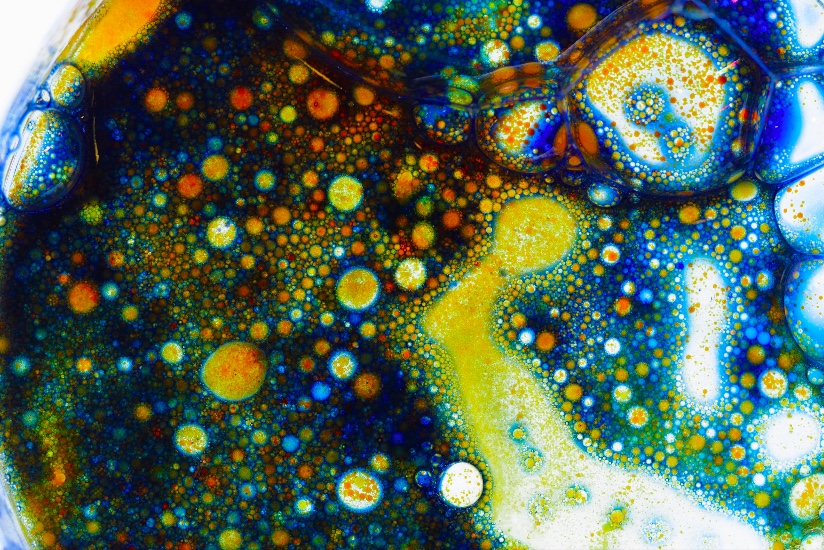Friend or foe? This article by Raymond B. Cadwell, PhD, which appears in our Summer 2019 issue, delves into the positive role that our microbes play in regulating our overall health. To read the magazine in full, pick up a copy in your local stockist or subscribe to receive a copy direct to your door.
Friends in Disguise
Make peace with your microbes
by Raymond B. Cadwell, PhD
Vladimir Nazaredic from the Genomic Research Laboratory at Geneva University Hospitals states that out of the 13,000 scientifically recognised bacteria species, around 150 of these are pathogenic to humans.
All of our microbes have the capacity to be both beneficial and harmful in the body. I believe that every microbe has a benign version of itself and a pathogenic one. It is well documented that the good bacteria of the gut are essential for keeping pathogenic bacteria under control.
We have no difficulty admitting the benefits of lactobacillus, bifidobacterium including enterobacter and Staphylococcus.
There is even a beneficial form of E-Coli, which is called E-Coli Nissle 2017. This is administered in a probiotic called Mutaflor and it has been very successful in assisting with such issues as chronic constipation, abdominal pains and cramps.
Another known example is H Pylori. For many years, H Pylori has been associated with gastritis, peptic ulcer, Parkinson’s disease, cerebral vascular disease and sudden death. However, a study entitled “Helicobacter Pylori colonisation is inversely associated with childhood asthma” (Yuchen & Martin J Blaser), from the School of Medicine and Microbiology, New York University, found that using antibiotics to kill off H Pylori in children has led directly to high levels of childhood asthma. The benefits of H Pylori are regarded as:
- Regulating the production of stomach acid
- Participating in the creation of a healthy immunity
- Participating in the secretion of gastrin (stomach brain communication)
- Protecting against asthma and allergies
It has also been found that the fermentation produced by lactobacisullus protects H Pylori, and that turmeric regulates the action of H Pylori as well as Omega 3 fatty acids. This is an example of how a bacteria which has long been regarded as an enemy of human immunity can also be highly beneficial.
The Epstein Barr virus carries extremely useful information in the regulation of the glandular system. When Epstein Barr is out of balance, it does cause glandular problems. When in balance, it helps the glandular system to function well.
Another example is staphylococcus aureus, generally regarded as being an unfriendly bacteria. This bacteria first enters the human microbiome at birth, where the baby picks it up from the skin of the mother. It then forms part of the baby’s new immune system. When it is out of balance, it can cause many different types of skin issues and fungal infections. On the other hand, when it is well balanced, it protects the skin against many other microbes as well as fungal infections.
In complimentary multi-dimensional medicine, we take a benign attitude to microbes. Microbes are us: they play a big part in our immune system, combined with immune cells to provide us with a good strong protective system for our health and well-being.
In applied biomagnetic therapy, the foundation of multi-dimensional medicine, we do not wage war on microbes. We don’t believe that doing so is proving to be successful for humans. More and more bacteria are becoming immune to antibiotics, as are viruses to anti-virals.
Why wage war on ourselves in this way? Why not take a compassionate and kind approach to our immune system and work with it in order to cooperate in finding healthy solutions to our illnesses? Our body wants to cooperate with us, our biology is evolutionary, and it can evolve. So, let’s take a different approach.


